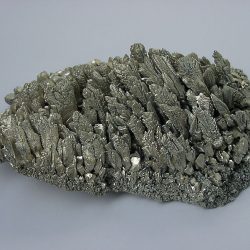Magnesium is an essential mineral for our body, playing a crucial role in many biological processes. There are several forms of magnesium, each with its own characteristics and benefits. This article compares two popular forms: marine magnesium and magnesium bisglycinate, to help you decide which one to choose for your needs.
What is magnesium?
Magnesium is an essential trace element for the body, involved in over 300 enzymatic reactions. It is present in many foods, including wholemeal cereals, green leafy vegetables and dried fruit. However, our diet is not always sufficient to cover our magnesium needs, which is why food supplements are so useful.
Marine magnesium
Marine magnesium, as its name suggests, is a form of magnesium extracted from seawater. This form of magnesium is particularly interesting. Not only is it naturally rich in magnesium, but it also contains other trace elements that are beneficial to health.
The process of extracting marine magnesium generally involves evaporating seawater, thereby concentrating the minerals it contains. This natural method of concentration ensures the high quality and diverse mineral composition of the final product. Marine magnesium contains not only a significant amount of magnesium, but also other essential minerals that occur naturally in seawater.
One of the major advantages of marine magnesium is its good digestive tolerance. Unlike certain other forms of magnesium, which can cause digestive problems such as diarrhoea or bloating, marine magnesium is generally better tolerated by the digestive system. This makes it suitable for regular, long-term consumption, especially for people who may have gastrointestinal sensitivities.
What’s more, marine magnesium is renowned for its ability to help the body absorb magnesium. Its natural form and the presence of other minerals in synergy contribute to better bioavailability of magnesium, which means the body can absorb and use it more effectively.
Magnesium bisglycinate
Magnesium bisglycinate is a unique form of magnesium supplementation, clearly distinguishing it from other forms available on the market. This magnesium salt is chelated, i.e. bound to amino acids, more specifically glycine, a non-essential amino acid. This chelated combination has particular significance in terms of bioavailability and digestive tolerance.
A notable feature of magnesium bisglycinate is its high bioavailability. In fact, thanks to the binding of magnesium to glycine, magnesium bisglycinate is absorbed directly from the small intestine, without being influenced by gastric pH. This direct, efficient absorption means that magnesium enters the body’s cells more quickly and easily. As a result, magnesium bisglycinate is considered to be one of the best forms of magnesium in terms of bioavailability and efficacy.
In addition to its bioavailability, magnesium bisglycinate is particularly appreciated for its digestive tolerance. This form is often recommended for people with gastrointestinal sensitivities, as it is less likely to cause digestive problems such as bloating, constipation or diarrhoea, problems commonly associated with other forms of magnesium supplements. Its chelated nature makes bisglycinate gentle on the stomach and intestine, providing a safe and comfortable supplementation option for those with digestive problems.
What’s the difference between marine magnesium and magnesium bisglycinate?
Marine magnesium, a natural form of magnesium obtained by the evaporation of seawater, contains a mixture of inorganic salts with varying levels of oxide, hydroxide, chloride and sulphate. Historically, it was considered to be easily assimilated by the human body, comparable to the magnesium naturally present in fruit and vegetables. As well as providing a dose of energy, it helps detoxify the body, regulates blood sugar and blood pressure, and has a relaxing effect on muscles and nerves. However, inorganic forms of magnesium, such as marine magnesium, may be less well absorbed and cause intestinal problems in some individuals.
Magnesium bisglycinate, on the other hand, is a form in which the magnesium is bound to glycine, a non-essential amino acid. This combination promotes very good bioavailability, with efficient assimilation by the body and without causing any laxative side-effects, as is the case with other sources of magnesium. The absorption speed of magnesium bisglycinate is also notable, making it potentially more effective than other forms of magnesium.
What are the benefits of marine magnesium?
Another advantage of marine magnesium is that it combines other trace minerals with magnesium, acting synergistically to optimise its effectiveness in the body. However, it is important to note that marine magnesium is an insoluble magnesium salt, which may influence its bioavailability compared with other soluble forms such as bisglycinate.
In conclusion, the choice between marine magnesium and magnesium bisglycinate depends on individual needs, digestive tolerance and specific health objectives. Magnesium bisglycinate stands out for its high bioavailability and good digestive tolerance, while marine magnesium offers the advantage of providing additional beneficial minerals. We recommend that you consult a healthcare professional to determine the form best suited to your personal needs.
Importance of vitamin B6 in magnesium absorption
The importance of vitamin B6 in magnesium absorption is an essential topic in understanding the bioavailability and efficacy of magnesium supplements. Vitamin B6, scientifically known as pyridoxine, plays a crucial role in many bodily functions, including the health of the nervous system and the production of neurotransmitters such as serotonin and GABA.
Vitamin B6 is particularly important in the context of magnesium absorption. It facilitates the entry of magnesium into the cells, thereby increasing its effectiveness. This synergy between magnesium and vitamin B6 is crucial, particularly for those seeking to optimise the health benefits of magnesium.
Studies have shown that combining magnesium with vitamin B6 may be more effective in reducing symptoms of stress and anxiety than taking magnesium alone. A French study compared the effects of taking magnesium alone (300 mg/day) with magnesium vitamin B6 (300 mg 30 mg/day) in people suffering from stress and low magnesium levels. Finally, studies have shown that combining magnesium with vitamin B6 was slightly more effective in reducing symptoms of stress in these individuals.
Vitamin B6 therefore not only improves magnesium absorption but also helps to maximise its effects on mental health. This is particularly relevant for people suffering from stress or anxiety-related disorders. Adding vitamin B6 to magnesium supplements can therefore offer a more comprehensive approach to managing these disorders.
Magnesium food supplements available from online pharmacies
The choice of a magnesium food supplement depends on a number of factors. For example, the amount of magnesium needed, the form of magnesium and digestive tolerance. It is vital to select a supplement that meets your specific needs. On the soin-et-nature.com website, you’ll find a variety of magnesium-based food supplements, each with its own special features and benefits. Here is a comparative table of the different products available:
| Product | Unique characteristics |
|---|---|
| Liposomia Magnesium | Improved absorption thanks to liposomal technology. |
| Biocyte Magnesium Rescue | Designed for rapid action when magnesium is urgently needed. |
| Vitall Taurine and Magnesium Bisglycinate | Combination of taurine for a synergistic effect with magnesium. |
| Salus Magnesium Mineral Drink | Mineral drink for quick and easy absorption. |
| Spasmag Magnesium & Brewer’s Yeast | Combined with brewer’s yeast for additional benefits. |
| Pharmavie Magnesium | Standard formula for regular use. |
How do I choose the right type of magnesium?
When choosing a magnesium supplement, you should take several factors into account. This will enable you to select the form best suited to your needs and your health.
- Bioavailability: Bioavailability refers to the amount of magnesium that can be absorbed and used effectively by the body. Some forms of magnesium, such as bisglycinate or citrate, have a higher bioavailability than others, such as magnesium oxide. It is therefore essential to choose a form of magnesium that guarantees maximum absorption.
- Digestive tolerance: Digestive tolerance is another important criterion. Some people may experience gastrointestinal side effects, such as bloating or diarrhoea, with certain types of magnesium supplements. Experts often recommend forms such as marine magnesium or bisglycinate because of their better digestive tolerance.
- Expert recommendations: It is always wise to consult a healthcare professional or nutritionist before starting magnesium supplementation. They can provide advice based on your specific health conditions, nutritional needs and any ongoing medical treatment.
- Combining different forms of magnesium: In some cases, combining different forms of magnesium can be beneficial. For example, a combination of magnesium citrate for its high bioavailability and marine magnesium for its richness in trace elements can offer an optimal balance between absorption and nutritional intake.
Myths and facts about magnesium
There are many myths and misconceptions surrounding the different forms of magnesium. What’s more, they are often based on incomplete or misinterpreted information. To demystify these beliefs, it is crucial to use an approach based on rigorous scientific research.
- Myth 1: All forms of magnesium are equivalent in terms of efficacy and bioavailability. The reality is that bioavailability varies considerably between different forms of magnesium. For example, studies have shown that magnesium citrate and magnesium bisglycinate have a much higher bioavailability than magnesium oxide.
- Myth 2: Magnesium always causes digestive problems. Although magnesium oxide can cause laxative effects, other forms such as bisglycinate or marine magnesium are generally better tolerated and less likely to cause gastrointestinal problems.
- Myth 3: The higher the dose of magnesium, the better. In reality, excessive magnesium intake can lead to problems such as low blood pressure or reduced muscle tone. It’s important to stick to the recommended doses and consult a healthcare professional to determine the right dose for your individual needs.
- Myth 4: Magnesium supplements are useless if you eat a balanced diet. Although many foods contain magnesium, factors such as modern farming and eating habits can reduce the amount of magnesium available in the daily diet. In some cases, supplementation may be necessary to reach optimal levels.
What are the benefits of magnesium for the skin?
Magnesium is recognised for its many benefits for the skin. It is particularly effective in reducing skin irritation and inflammation. This makes it ideal for sensitive skin. By regulating cytokines, key proteins in the body’s inflammatory response, magnesium helps to soothe irritated skin. It also plays a crucial role in maintaining the skin barrier. In this way, it protects the skin from dehydration. This is all the more important because a good skin barrier is essential for preventing dryness and retaining the skin’s natural moisture. In short, magnesium is a key element for healthy skin, contributing to hydration, protection and the reduction of inflammation.
References:
- Nutritional references for vitamins and minerals. ANSE 2021
- Which magnesium to choose By Sarah Amiri – Dietician
- Magnes Res. 2008 Jun; 21(2): 77-82. A connection between magnesium deficiency and aging: new insights from cellular studies





